With nearly 58% of the vote in the largest election in Mexican history, Ms. Claudia Sheinbaum - a physicist with a doctorate in energy engineering - was elected and became the first woman to hold the highest leadership position in Mexico.

Claudia Sheinbaum speaks to supporters after winning the presidential election in Mexico City, June 3, 2024. Photo: THX/TTXVN
The achievement is seen as a historic milestone in a country where the traditional government is largely male-dominated and the majority of the population is Roman Catholic.
According to CNN, the 61-year-old former mayor will replace outgoing President Andrés Manuel López Obrador, her longtime ally. Over the years, President Lopez Obrador has implemented social welfare programs that have lifted many Mexicans out of poverty and won the public's favor for the leftist Morena party. Claudia's six-year term will officially begin on October 1.
“Our mission is to always take care of each Mexican equally. Even though many Mexicans do not fully agree with our project, we will have to walk in peace and harmony, continuing to build a more just and prosperous Mexico,” Claudia said on June 3 after learning of her victory.
Impressive academic and career achievements
Claudia was born in Mexico City in 1962, whose grandparents emigrated from Europe to escape the Holocaust.
While studying at the National Autonomous University of Mexico (UNAM), she actively participated in student political activities, protesting against the privatization of education. After graduating, she went to the University of California (USA) to study energy engineering, mastering English and earning a Master's degree, before returning to UNAM to pursue a doctorate.
Since 2000, Ms. Claudia has been involved in politics and was appointed by Mr. Lopez Obrador, then Mayor of Mexico City, as head of the city's Department of Environment.
After six years in office, Claudia focused on energy research, joined the International Panel on Climate Change (IPCC) and became a member of the team that received the Nobel Peace Prize in 2007.
In 2015, she became the first woman elected mayor of Mexico City's Tlalpan district, a position she held until 2017. In 2016, she was elected mayor of the entire city and again became the first female mayor of Mexico City. She resigned in June 2023 to run for president.
Claudia has two children and one grandchild. She met her husband, Jesús María Tarriba, when they were both studying physics at university. He is now a financial risk specialist at the Bank of Mexico.

Presidential candidate Claudia Sheinbaum shows off her inked fingerprint after casting her vote during the presidential election at Alcaldia Tlalpan in Mexico City. Photo: Getty Images.
The biggest challenge for a female president
Over the years, female politician Claudia has always defined the line between supporting the outgoing President and becoming a distinct independent candidate.
One of the president-elect's biographers, journalist Jorge Zepeda, has argued that, upon taking office, Claudia will likely gradually develop her own platform: she will first remain faithful to her predecessor's projects and then gradually announce her own programs so as not to destabilize the party.
Observers have pointed out that the rampant criminal gangs in Mexico will be Claudia’s biggest and most immediate challenge after she takes office. According to a report by Vision of Humanity, a research company that analyzes data on peace efforts around the world, organized crime has been the main cause of murders and gun violence in Mexico over the past few years. Violence has even been widespread in this year’s election. Dozens of candidates have been killed by criminal organizations plotting to influence those in power.
Mexico has one of the highest murder rates in the world, and more than 100,000 people remain missing in the country. It is also a dangerous place for women, with a notably high femicide rate in the region. Figures also show that around 10 women are murdered every day.
Will Freeman, a fellow for Latin America at the Council on Foreign Relations, said Claudia would have to act quickly on Mexico's security and organized crime issues.
During the election campaign, when speaking to supporters, Ms. Claudia often emphasized that her administration would focus on building a strategy to address the causes and aim for no one to be punished.
As Mayor of Mexico City, Claudia achieved a feat of cutting the murder rate there in half.
Will US-Mexico relations have an impact?
Both Mexico and the United States hold elections in 2024. Claudia will take office just a month before Americans go to the polls in November.
Mexico has long been a key ally of the United States on issues ranging from trade to drug trafficking to migration management. Current and former U.S. officials have frequently described the relationship between President Joe Biden and Mexican President Andrés Manuel López Obrador as friendly and professional, and look forward to a productive relationship with Mexico’s next president.
This election in Mexico is said to take place at a crucial time for the Biden administration.
In recent months, the U.S. has relied heavily on Mexico to enforce immigration laws and help stem the flow of migrants to the southern border. The Biden administration will likely need Mexico’s approval and support to enforce the ban.
Source





![[Photo] Top players gather at the 2025 Nhan Dan Newspaper National Table Tennis Championship](https://vphoto.vietnam.vn/thumb/1200x675/vietnam/resource/IMAGE/2025/5/23/9ad5f6f4faf146b08335e5c446edb107)


![[PHOTO] Green bamboo hills of A Lu](https://vphoto.vietnam.vn/thumb/402x226/vietnam/resource/IMAGE/2025/5/23/0289501c5a834422bd096f1f62b5c8e4)




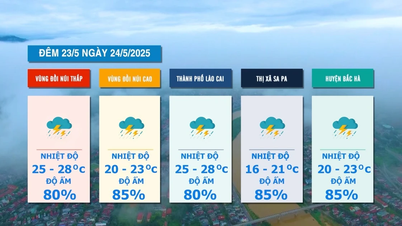









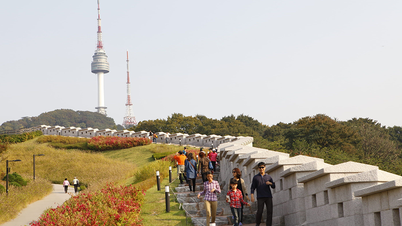















































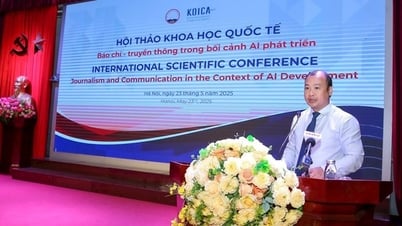


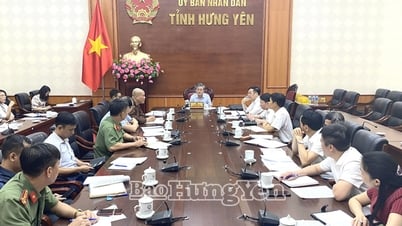


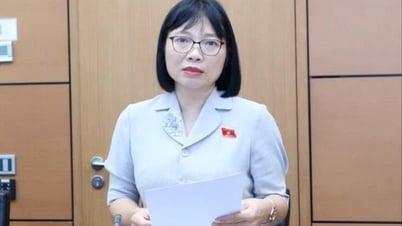
















Comment (0)